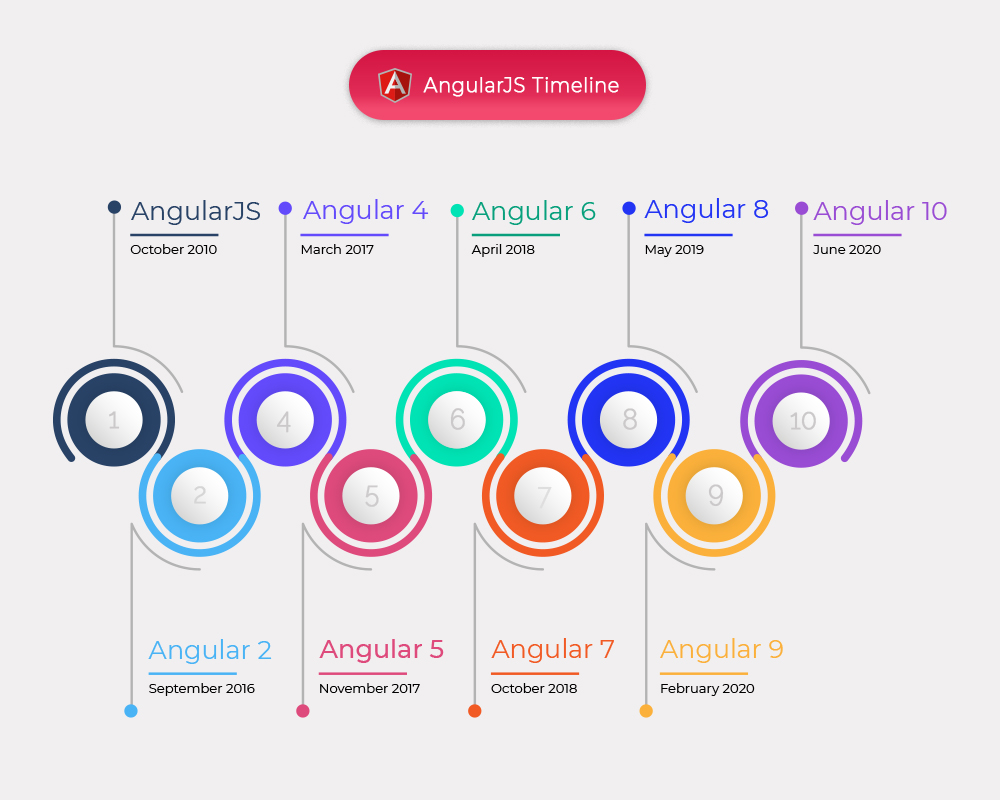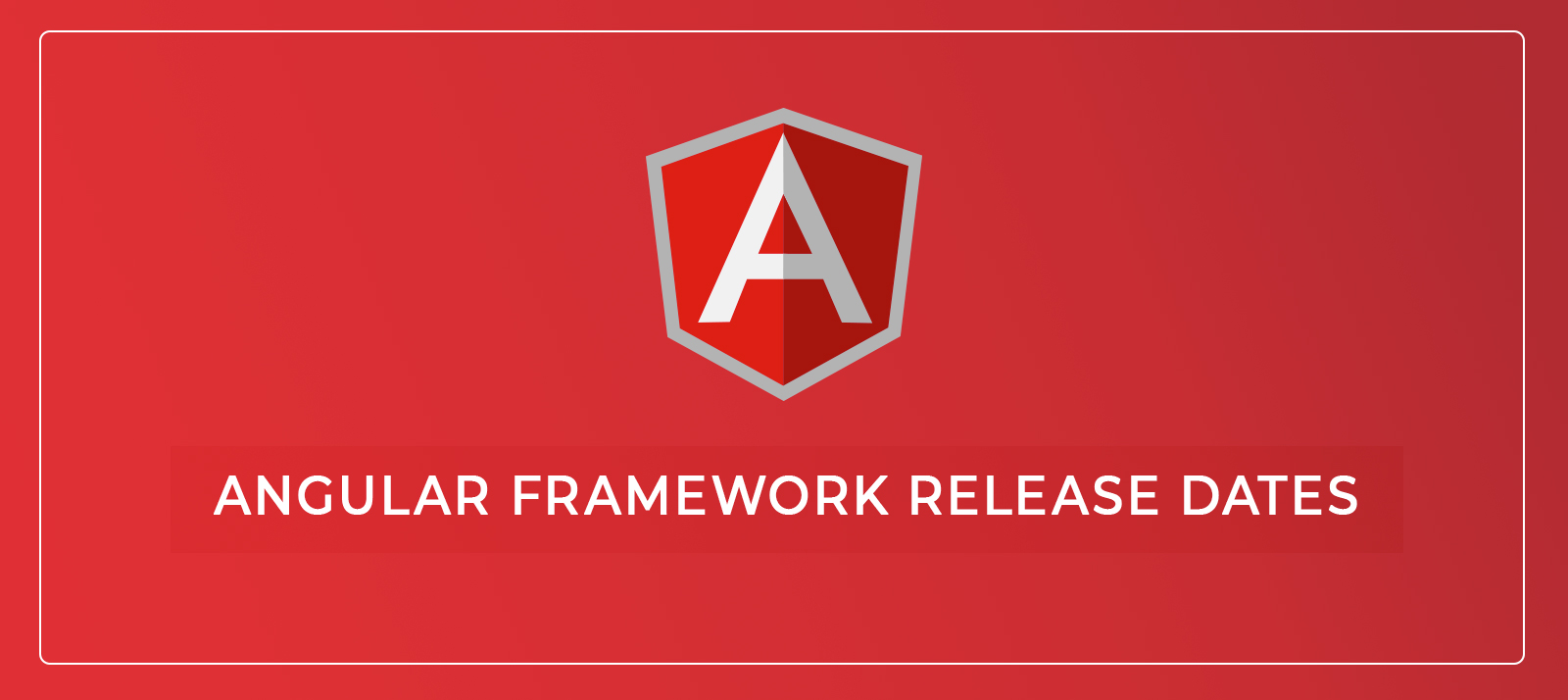Frameworks are essential and handy tools that allow web developers to easily build both mobile and web applications. One of the most common and widely used frameworks that simplifies the process of web application development is Angular. It was originally created by Misko Hevery, who was determined to find a solution to the common issues with HTML.
The first version of the Angular framework was released approximately a decade ago, in 2010. Some developers and users call it Angular 1 while others refer it as AngularJS. That said, the framework was officially named as AngularJS. The JavaScript framework is maintained by Google and a large community of expert developers.
Angular framework has been receiving many improvements and new features to offer a better experience to web developers. As a result, new versions of the framework are released at regular intervals. So, let us take a quick look at the different versions of the Angular framework starting from its very first version, the AngularJS admin templates.
AngularJS Timeline

AngularJS
- AngularJS release date: October 2010
- The code of AngularJS framework is written in JavaScript framework.
- Model View Controller (MVC) and Model View Model (MVM) architecture.
- Data Binding and Dependency Injection
- Run only on the client-side.
Angular 2
- Angular 2 release date: September 2016
- It’s a complete rewrite of the AngularJS framework
- Written in Typescript instead of JavaScript
- AngularJS was not built with mobile support in mind, but Angular 2 supports mobile and low-end devices
- Component-based
Note
Angular 3 version was skipped to avoid confusion since Angular’s router package was already released as vs3.3.0
Angular 4
- Angular 4 release date : March 23, 2017
- Compatible with both Typescript 2.1 and Typescript 2.2
- Animation package Updated
- Major Template Changes
- Improved speed and performance
Angular 5
- Angular 5 release date: November 2017
- Build optimizer to remove unnecessary code from web applications
- Major improvements in Angular Compiler
- Supports TypeScript 2.3 version
- Angular Universal State Transfer API and DOM included
Angular 6
- Angular 6 release date: April 2018
- No major changes
- Uses angular.json instead of .angular-cli.json
- Angular Elements were introduced
- Ivy : Next Generation Angular Rendering Engine
Angular 7
- Angular 7 release date : October 2018
- CLI Prompts updated to V7.0.2
- Angular Material & Component Dev Kit included
- Drag & Drop module available
- Major performance improvements
Angular 8
- Angular 8 release date: May 2019
- Major CLI workflow improvements
- Angular’s dependencies have been updated
- New Lazy Loading syntax
- Builder and Workspace APIs
Angular 9
- Angular 9 Release date : February 2020
- Ivy default Angular compiler
- Better Debugging & Faster Testing
- Changes with Dependency Injection and Angular Forms
- Angular Component & API Extractor updates
Angular 10
- Angular 10 Release date : June 2020
- A program based entry-point finder introduced
- Compiler updated
- Browser configuration has been updated
- Angular Language service
